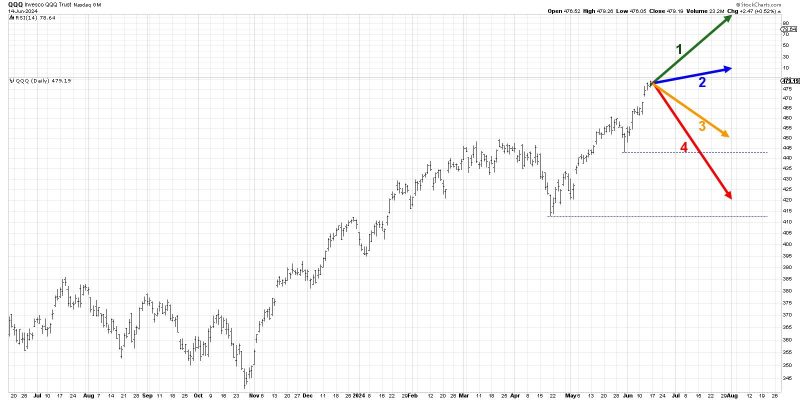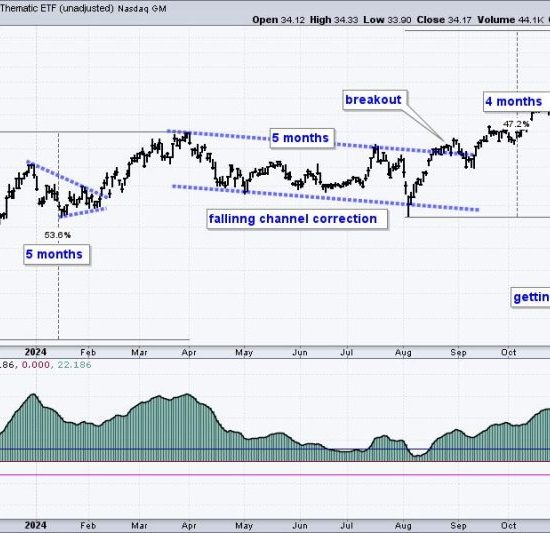The financial markets are perpetually filled with uncertainty, and investment portfolios are repeatedly tested by the unpredictable tides of economic forces. Among the many financial instruments at the heart of this ongoing speculative battle is the Invesco QQQ Trust (QQQ). The QQQ, an ETF that closely mimics the performance of the Nasdaq-100 Index, is not immune to these market fluctuations, and possible adverse market trends could significantly impact its value. This article explores the possibilities of a dramatic drop in QQQ’s prices, considering some of the potential triggers for such a downturn.
The QQQ ETF has primarily been a robust investment option due to its composition, which is based on 100 of the largest non-financial companies listed on the Nasdaq exchange. Many of these are technology and internet companies like Apple, Amazon, Google, which have shown impressive growth in recent years. However, several factors may change this positive trajectory, leading to a significant downside.
Firstly, overvaluation risk cannot be overlooked when discussing the QQQ. The tech sector, which largely fuels the QQQ, has seen huge run-ups in stock prices, leading to the possibility of inflated valuations. There is an inherent risk that a correction or a burst of this potential ‘bubble’ could cause a significant drop in the QQQ.
Another key factor could be economic headwinds, which could take the form of a nationwide or global recession. The onset of recession affects all sectors of the economy, and the technology sector is no exception. Recession typically erodes consumer and business spending, which is bad news for QQQ’s constituent companies that thrive on such expenditure. Economic downturns often lead to lower revenues, translating to lower share values that negatively affect the price of the QQQ.
High correlation among QQQ’s top holdings could also potentially trigger a dramatic downturn. QQQ is heavily reliant on a handful of its top constituent companies. For instance, Apple, Microsoft, Amazon, and Google collectively account for a significant percentage of the QQQ’s total valuation. If these firms face difficulties simultaneously, the QQQ will likely experience a significant drop in its price.
Furthermore, regulatory risks could spark a dramatic downturn in QQQ. Technological companies have increasingly come under the microscope of regulatory bodies for issues related to data privacy, antitrust laws, and tax avoidance, among others. If tighter regulations are enacted or mega fines slapped, they could severely impact the profits of these companies. Such developments, combined with negative sentiment around regulatory scrutiny, could put a dent in the QQQ’s value.
Finally, geopolitical tension and trade wars can also negatively impact the QQQ. Technological firms operate globally, and a considerable portion of their profits comes from international trade. Any alteration in the trade dynamics due to geopolitical instability can impact their profitability, therefore affecting the QQQ’s value.
In conclusion, while the QQQ has traditionally shown resilience and consistent growth, several factors can contribute to a sudden and dramatic downward turn. From overvalued tech stocks and economic downturns, correlation among top holdings, regulatory risks, to geopolitical tensions, the threats are real and multifaceted. As with all investment decisions, a close monitoring of market trends and comprehensive risk management strategies are key to navigating the future uncertainty.




